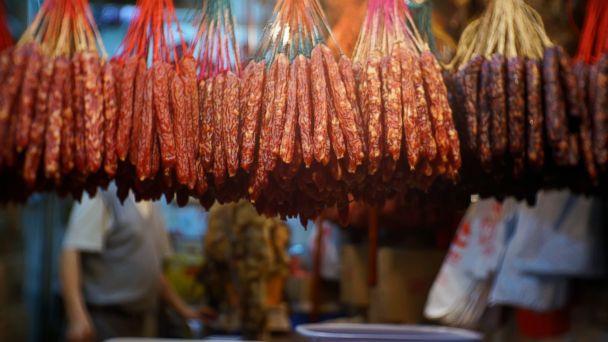Scientists Cook Up Sausage From Baby Poop

(Getty Images)
Spanish researchers have developed a gourmet sausage made from baby poop. Yes, baby poop.
More specifically, they've used a strain of bacteria derived from infant feces.
Writing in the journal Meat Science, the scientists described how they took 43 fecal samples from infant diapers provided by parent and midwife volunteers. Using three strains of probiotic bacteria they isolated from the dirty diapers, the investigators cooked up several batches of pork that resembled a type of fermented Mediterranean sausage known as feut.
Experts said it is not nearly as revolting as it sounds.
Related: Can Probiotics Help You Lose Weight?
"The source of the bacteria is of no concern to me. How did the babies get the organisms in the first place? Likely from mom," said Gregor Reid, the director of the Canadian Research and Development Centre for Probiotics in Ontario, Canada. "As long as the isolated strain is properly tested, it should be fine."
Jeremy Burton, another probiotic researcher, noted that no actual poop would have found its way into the sausage. When human feces is mined for its healthful powers, it is diluted to isolate a tiny quantity of beneficial bacteria. Once a desirable bacterial strain is isolated, scientists transfer it to a petri dish and continue growing it in the lab. By the time the microbial do-gooders become food ingredients, there is virtually no source material left.
Beyond the probiotic advantages of better digestion, the scientists said their fermented creation was lower in fat and salt compared to regular sausage. Professional taste testers declared it delicious.
To be fair, Burton said, many common foods contain probiotic bacteria originally derived from human waste.
"Ever eaten a probiotic yogurt? The probiotic strains found in those yogurts have human origins," he said.
Burton added that once people get past the ick factor, they often learn to appreciate the advantages of "caca cuisine." Probiotic bacteria, he said, offer additional health advantages beyond the intestinal tract.
"For a long time, we tried to kill all the microorganisms in our body - but then we learned that we are designed to be eating bacteria from our environment," he said. "We should try to get more of these beneficial bugs into our system."